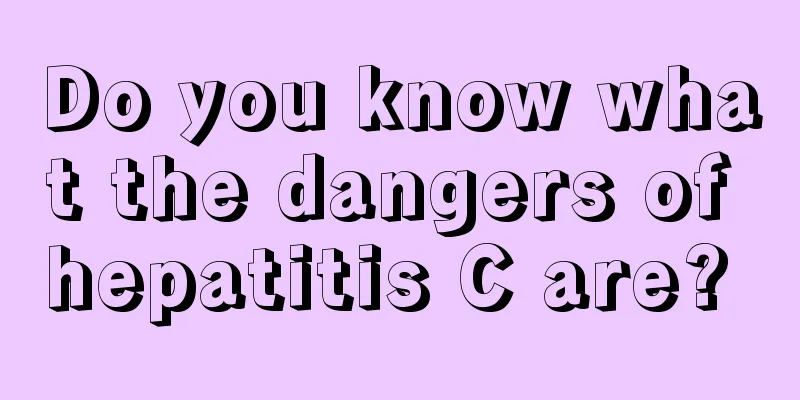It's been five days since the tooth was extracted and there is still a little blood

|
If our teeth are not straight, they need to be extracted. Although children are afraid of having their teeth pulled, adults don’t like having their teeth pulled either. Although tooth extraction seems simple, as we all know, if it is not treated in a professional hospital, it will cause some problems. Some people still have a small amount of blood five days after tooth extraction. What should they do? Three types of people need to have their teeth extracted First, patients with crowded teeth. For this type of patients, dental deformities occur due to the mismatch between tooth volume and bone volume. Therefore, during orthodontic treatment, a certain number of teeth must be extracted to coordinate the relationship between tooth volume and bone volume, relieve dental crowding, and reduce the recurrence of deformities. Second, patients with facial protrusion. For this type of patients, a certain number of teeth need to be extracted to obtain space, so as to achieve the purpose of retracting the front teeth and moving the back teeth forward, alleviating facial protrusion and making the patient's facial profile more beautiful. Third, patients who need to correct their occlusal relationship. Because of the asymmetric bite of the upper and lower teeth, these patients need to extract teeth to adjust the bite. 5 things to note after tooth extraction 1. After the tooth is extracted, you should gently bite the cotton ball or gauze roll placed on the extraction wound for 30 to 40 minutes. This not only stops bleeding and prevents saliva from seeping into the wound, but also helps blood clot in the wound and promotes wound healing. Everyone should be careful not to bite too hard, otherwise it will cause gum eversion and affect wound healing. Also, do not bite for too long to prevent the gauze roll from being soaked by saliva and increasing the chance of infection. 2. A small amount of blood may leak out a few hours after tooth extraction, causing the saliva to often appear light red. This is a normal phenomenon. If there is a large amount of fresh blood or blood clots, you should bite a piece of sterilized gauze and ask a doctor for further treatment. 3. On the day of tooth extraction, talk less, do not spit forcefully, do not lick the wound with your tongue, do not rinse your mouth or brush your teeth; you can eat after 2 hours, and semi-liquid and soft food are generally appropriate. Be careful not to eat hot food to stimulate the wound and cause pain, or cause blood vessel dilation, which may easily cause bleeding. When eating, avoid chewing on the side where the tooth was extracted. 4. There will be slight pain in the wound 1 to 2 days after tooth extraction, which is normal. Sedatives and analgesics may also be taken as appropriate. 5. When extracting a tooth during the acute inflammatory period, anti-inflammatory drugs should be taken for 2 to 3 days. |
>>: How many green dates are best to eat a day
Recommend
Is a heart rate of 82 normal?
Everyone's heart beats, and the frequency of ...
Is colon cancer contagious by eating together
Due to irregular lifestyles, environmental pollut...
How to remove yellow stains from the toilet
Toilets are becoming more and more common in mode...
How to diagnose thyroid cancer
How to diagnose thyroid cancer? Once thyroid canc...
The relationship between pulse and heart rate
Heart rate refers to the frequency of heartbeats,...
What causes cervical cancer and what are its typical symptoms
Cervical cancer is mainly caused by human papillo...
What is high blood acidity? Causes of high blood acidity
High blood acidity is actually caused by an acidi...
How to reduce inflammation of acne
Acne on the face is a common symptom. If you do n...
Will big three positives turn into liver cancer? The harm of big three positives in liver cancer should be made clear
Many people may know that HBsAg can turn into liv...
Experts explain why young people suffer from nasopharyngeal cancer
It is understood that in recent years, nasopharyn...
What are the ways for women to prevent cervical cancer? Can more examinations prevent cervical cancer?
What women fear most is cervical cancer, especial...
Why is glioma prone to recurrence
Glioma is a very malignant tumor. 20% of patients...
How to treat glioma recurrence? What are the solutions to glioma recurrence?
Glioma is a highly recurrent brain tumor disease....
What is the fastest way to treat HPV58 positive
Medically, HPV58 infection can be effectively cur...
Distinguishing four lung diseases that are easily confused with lung cancer
Many symptoms of lung cancer are similar to those...









